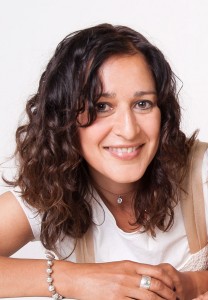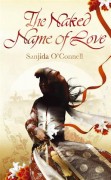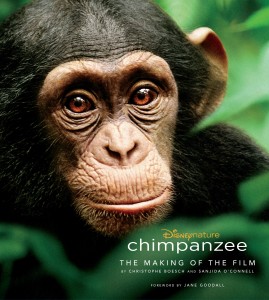Science in Fiction
 It’s not done well. In fact, it’s done infrequently and frequently badly. Science in fiction. I’m not talking about non-fiction books dealing with science or science fiction, which has to have, at least, a modicum of science as a given, but science in your common or garden novel.
It’s not done well. In fact, it’s done infrequently and frequently badly. Science in fiction. I’m not talking about non-fiction books dealing with science or science fiction, which has to have, at least, a modicum of science as a given, but science in your common or garden novel.
Science has a lot to offer: we are talking subjects as diverse as environmental destruction, quantum physics, particle physics, nanotechnology, neurosurgery, psychopathy and molecular gastronomy – all at your disposal as a writer. We are talking of characters who could be Brian Cox, Robert Winston, Craig Venter or Bill Gates. Maybe even, dare I say it, a female scientist.
So you could have scientists as characters, science as a theme, science as the subject of the novel – and this is at a time when science in movies is big business (Another Earth, After Earth, Gravity, Contagion).
Think Michael Crichton telling you about the techy or medical bits (essentially how a satellite phone works in Congo), or Ian McEwan’s turgid explanation of de Clerembault’s syndrome in Enduring Love (although, to be fair, his examination of climate change in Solar was a lot better).
As someone who always – from the age of 5 – wanted to be a zoologist and a novelist, I started out by doing a zoology degree followed by a PhD on the psychology of chimpanzees. This inspired my first novel, Theory of Mind, about a girl studying for a PhD on chimpanzees who meets a disturbing little boy who cannot feel pain but is pretty good at inflicting it. My first three novels all feature scientists and have scientific themes – empathy in Theory of Mind, free will versus genetic destiny in Angel Bird, God and evolution in The Naked Name of Love – and I hope that this enriches the stories rather than diminishes them.
 Funnily enough, I think the writers that write best about science in fiction today are women. I say funny although it is actually tragic. Men still outnumber women in careers in science: female involvement in science begins to dwindle after school, starts to peter out after a first degree at university and then, frankly, women are practically shoved out of their career if they have children and don’t want to outsource all the childcare or don’t have a stay-at-home partner.
Funnily enough, I think the writers that write best about science in fiction today are women. I say funny although it is actually tragic. Men still outnumber women in careers in science: female involvement in science begins to dwindle after school, starts to peter out after a first degree at university and then, frankly, women are practically shoved out of their career if they have children and don’t want to outsource all the childcare or don’t have a stay-at-home partner.
And from my own experience, novel-writing scientists are not encouraged. My school did not wish me to combine arts and sciences at A level and my university raised its eyebrows when I insisted on taking philosophy alongside zoology. Goodness knows what would have happened if I’d tried to study Creative Writing.
Authors whom I believe successfully weave science in their novels are Barbara Kingsolver, Margaret Atwood, Andrea Barrett, Aimee Bender (in her mind-melding book, The Particular Sadness of Lemon Cake) and Ann Patchett in State of Wonder. Margaret Atwood is, of course, a legend.
Raised by parents who were zoologists, she has always interwoven science, particularly biology, into her novels – think of Cat’s Eye, about a child whose father is an entomologist – and her ‘science-fiction’ novels like The Blind Assassin and The Handmaid’s Tale. Most recently, she’s brought out a trilogy on a dystopian future where genetic engineering is rife, peopled by gene-spliced life forms.
‘The pigoon organs could be customized, using cells from individual human donors, and the organs were frozen until needed. It was much cheaper than getting yourself cloned for spare parts or keeping a for-harvest child stashed in some illegal baby orchard…Still, as time went on and the coastal aquifers turned salty and the northern permafrost melted and the vast tundra bubbled with methane, and the drought in the midcontinental plains regions went on and on, and the Asian steppes turned to sand dunes, and meat became harder to come by, some people had their doubts.’
 I love the historical science captured by Andrea Barrett’s polished prose in Ship Fever and Voyage of the Narwhal and Barbara Kingsolver’s unflinching examination of global warming inFlight Behaviour and God, pesticides and coyotes in The Prodigal Summer.
I love the historical science captured by Andrea Barrett’s polished prose in Ship Fever and Voyage of the Narwhal and Barbara Kingsolver’s unflinching examination of global warming inFlight Behaviour and God, pesticides and coyotes in The Prodigal Summer.
Ann Patchett’s State of Wonder is simply a tour de force. A gentle scientist, Marina Singh, is sent to Brazil to discover how and why her college, Anders Eckman has died. Anders had been attempting to find out if hard-nosed scientist, Dr Annick Swenson, is anywhere near the cure for malaria she has told her investors she is close to developing in utmost secrecy deep in the Brazilian Rio Negro. What Maria finds is far more startling than she could ever have imagined.
‘What had made the jungle so uncomfortable all this time was the absence of people. All the jungle had offered thus far were plants and insects, climbing vines and unseen animals, and that was bad enough, but now Marina realized that people were truly the worst-case scenario. It was like being alone on a dark city street and suddenly turning a corner to find a group of young men staring menacingly from a doorway.’
State of Wonder is The Heart of Darkness for our generation.
Even in science fiction, some of the most notably good examples of work that manages to be literary too is also by women – Margaret Atwood as mentioned, but also Ursula Le Guin, Doris Lessing and Mary Russell.
For the sake of fairness, I’d also like to mention a book written by a man, which does incorporate science well – Matt Haig’s The Humans – a quirky, funny and poignant meditation on what it means to be human told from the point of view of an alien impersonating a mathematician.
—
Sanjida is a novelist and a non-fiction writer. So far she’s had four novels and four works of non-fiction published as well as contributing to a couple of other books. Her novels are Theory of Mind and Angel Bird, published by Black Swan, and The Naked Name of Love and Sugar Island, published by John Murray.
Category: Contemporary Women Writers, On Writing
Comments (14)
Trackback URL | Comments RSS Feed
Sites That Link to this Post
- In the Media: 14th December 2014 | The Writes of Woman | December 14, 2014
- Featuring Women Writers on WWWB 2013 - Women Writers, Women Books | December 31, 2013
- Science in Fiction « Sanjida O'Connell | December 9, 2013




You overlooked Lois McMaster Bujold, who brings all the hopes, dreams, dreads and nightmares of life sciences/bio-engineering to her Vorkosigan novels, with a little physics thrown in as necessary. + T.K. Anthony
Hi – lovely post and mentions some of my fave books and writers. State of Wonder is I think hugely uder-rated. an all-time favourite and I’m a non-scientist!
Some one else you might like to know of is Tania Hershman – many of her short stories are science-based.
Ali B
Thank you Ali. I’m glad someone else likes State of Wonder as much as I do!
Tania is a friend – one with whom it’s nice to share that science connection…Bristol is a small world for writers!
All the best,
Sanjida
Thanks Sanjida for this meditation on writing science! I too am a science trained fiction writer. I’ve spent much more time being (and identifying as) a professional oceanographer than as a writer. I remember hiding the fact that I was taking a poetry course when I was a post-doc. I joked, with the few that knew, that I was a closet poet.
As a reader, it is indeed very frustrating to find so many cliches of science and scientists in books. As Pippa said, lablit is doing a good job discussing it. The NY Times had an article about lab lit about a year ago.
For years I’ve thought I was completely binary about science versus my love of the arts, but I find that it’s not that simple. Is anything ever? 🙂
A poetry-writing oceanographer sounds like a wonderful combination! You’re right, though, Marialena, hard to do justice to both subjects, as science and fiction require dedication in order to improve your work.
Best wishes,
Sanjida
I love fiction that engages with science but it is just very difficult to do well. I’m an ex-astronomer and have published a novel (‘The Falling Sky’) about a female astronomer who thinks she’s found evidence contradicting the Big Bang theory. I’m currently writing a collection of short stories, all inspired by science but I’m painfully aware I know practically nothing about life sciences.
Lablit (www.lablit.com) is a whole website devoted to this subject and they have a fantastic and exhaustive list of ‘lablit’.
Hi Pippa,
Your book sounds really interesting. Thank you for drawing my attention to lab lit.
Best wishes,
Sanjida
This is a great summary of one piece of fallout from the current art/science divide. The author did better than I did — I was told flat-out I could not do a double major in computer science and the humanities, because those two areas of study did not go together. (Less than ten years later, my alma mater stated offering programmes in just that.)
CP Snow’s book Two Cultures describes how hard it was to be a scientist interested in the arts (or an artist interested in science) in the first half of the 20th century. Personally I find a lot of it still holds true today.
Thank you, Katherine. I think it helped that I changed my university subjects after I started (botany to philosophy) as otherwise the faculty would never have agreed.
I think you are right, whilst there is lip service given to merging arts and sciences, CP Snow’s two cultures are still thriving – separately.
All the best, Sanjida
I’d actually like to use more science in my work. The problem is, although I’m pretty well-educated, I’m not an expert in any particular field, and I’m afraid of making technical errors. General concepts are simple enough to utilize, and I’m certainly comfortable with doing research on a subject that interests me, but when it comes down to the nitty-gritty details, I’m reluctant to mislead or perhaps even misinform. I would guess that a lot of writers – both women and men – feel the same way.
Hi Lori,
I think it’s a good thing to be wary of making errors but if you feel you would like to use science in your work, I would encourage you to do so. The rewards are worth it! Diligent research, fact checking and help from scientists is necessary even in non-fiction and journalism.
Good luck!
Sanjida